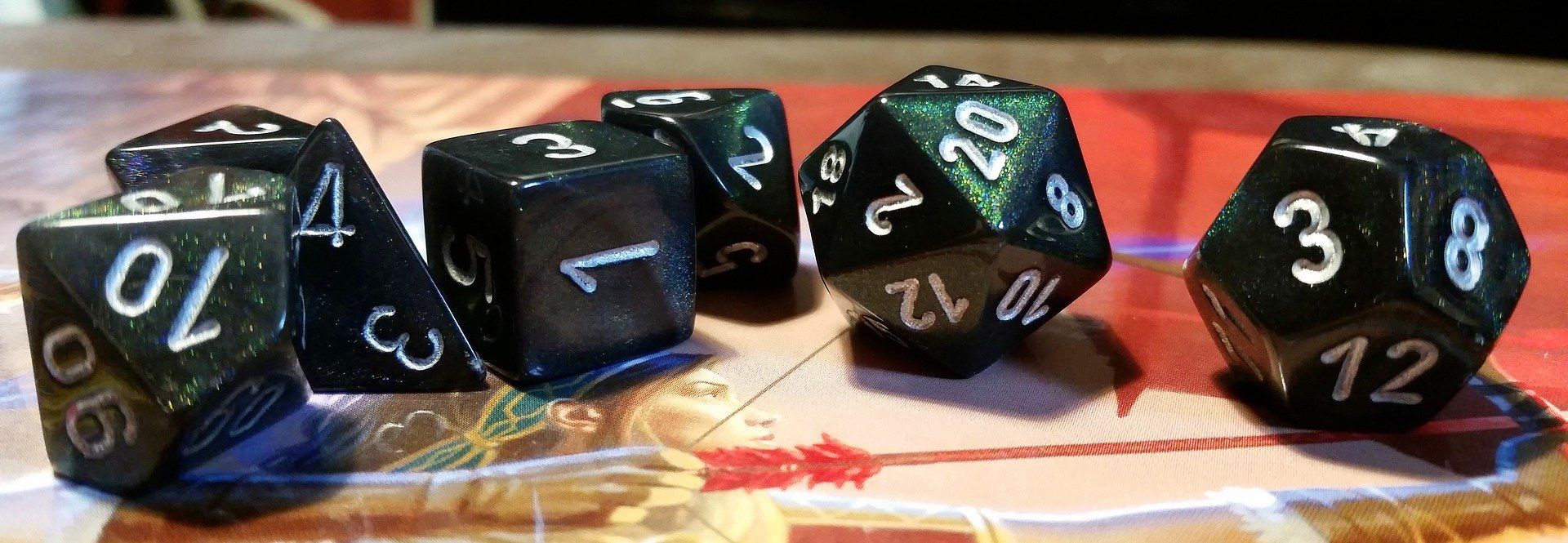There’s more to video games than meets the eye. They’re mainly used for entertainment, but many titles also have lessons to teach through their storylines and gameplay. An invested player can walk away with more than they realize.
A prominent example is practical real-life skills, which developers incorporate more and more in their games. They might be less realistic versions of common activities, but they still lay down a handy foundation for gamers to use and develop. Here are 10 life skills you can learn while playing video games.
1. Mathematics
Numbers are important to playing games and designing them. In Counter Strike, for example, you have to think about distance, angles, and timing to use your weapons right and take out the enemy.
First-person shooters are also a very immersive genre, helping you absorb the math lessons while having fun. In other words, a game’s entertainment value affects how much you learn from a game.
RPGs use a lot of math in their gameplay, too. Among all the fun facts to know about role-playing games is that they use numbers to measure a character’s abilities and their effectiveness in different situations.
As the player, you can calculate these and other factors for yourself. Then you can choose the right characters or strategies to progress through the game.
2. Money Management
Finance is another in-game skill that requires maths, but it affects enough additional aspects of gaming that it deserves a section all to itself.
Buying, selling, and trading equipment are integral parts of almost every video game out there. So is collecting enough coin to get that special weapon or armor you want. Sometimes you even need the money for missions.
Doing side quests and investing in businesses are more valuable lessons to learn from role-playing, adventure, simulation, and other genres. Through all these activities, you learn to manage your finances in smart ways.
Otherwise, you can also experience the frustrations of running out of money or having it stolen from under you. Video games really try to make their real-life features truly representational of our lived experiences.
Even so, make sure not to rely on virtual worlds when making actual financial decisions. You don't have an autosave you can revert to in real life.
3. Shopping
As already mentioned, buying and selling goods is a common element in gaming. It could be a part of the fictional universe or the developer’s monetization strategy.
For example, what in-game purchases do in mobile gaming is offer you items for sale that can improve gameplay. Whether with real or fictional money, you can learn to pick your purchases carefully, and to pace yourself when there are several items you need.
Some titles teach you extra handy shopping skills. You can haggle with merchants on Sims 4, while a store in Baldur’s Gate 2 brings in new equipment if you come back later. Biding your time, saving up for special occasions, and the art of persuasion are invaluable lessons to learn.
4. Planning
The most popular video games are those that challenge players. Quests, battles, puzzles, and even building a life for your character can demand some effort, which is that much more effective with a good plan in place.
Gamers learn to strategize for a range of goals, short-term and long-term. If you want to outsmart a tough enemy or create a powerful empire, you may need to think about factors like gathering resources, finding your opponent’s weaknesses, and how to beat likely obstacles.
Creative problem-solving, forethought, and attention to detail can benefit your life in so many ways. And, once again, video games’ fun side makes it easier to practice these skills.
5. Architecture
Sandbox and simulation games are genres that really let you draw on your inner architect. Electronic Arts even has a Builder category for Sims Spark’d competitors to showcase their unique creations.
Many players enjoy designing buildings, with or without a contest behind them. There may be a lot more to real-life architecture, but a video game can be just the platform you need to develop a creative and practical eye for the job.
Strategy games also have you designing entire cities. Although less close and personal, you can often choose the style of the buildings and where to place them for aesthetic and practical reasons—proximity to natural resources, defenses, and so on.
6. Interior and Exterior Design
Closely related to architecture, you can design lots of spaces, inside or outside. Various games give you a range of tools to play with, so you can turn a room, house, or garden into whatever you visualize.
You also have video games like Elder Scrolls: Skyrim that simply inspire fans to decorate their actual homes to mirror their favorite titles. Gaming really can help you develop artistic and practical skills.
7. DIY
As you step into the shoes of different video game characters, you get to experience parts of their journey. The more immersive the gameplay, the more you can learn from it. This is especially true when it comes to activities like creating buildings and objects.
Minecraft is the best example. While not fully realistic, it can teach you to enjoy DIY and appreciate the time, effort, and resources that go into crafting what you need.
If you then apply that appreciation and patience to real arts and crafts, there’s no telling what wonders you can make to improve your life outside of gaming.
8. Gardening
Planting, growing, harvesting, and using produce are features in several video games, genres ranging from simulation to role-playing. You may not be able to feel the soil or break a real sweat tilling your farm, but you do get the basics of how gardening works.
At the very least, you’ll know how to spot a nice plot of land, what tools you need to care for it, what problems to look out for, and how much effort it takes to grow plants and trees.
9. Survival Skills
With some video games, learning to craft your own tools, manage valuables, and plan missions are important to your very survival. Other skills you’ll come across include lighting a fire, camping, crossing harsh terrain, hunting, and dealing with wild animals.
Again, you won’t get the full experience of what these activities feel like, but the best titles will give you plenty of real-life tricks that might come in handy when you least expect it.
10. Martial Arts
Battle is essential to most video games, so players tend to know their way around swords, guns, armor, and combat tactics—in theory, at least. Titles like Mortal Kombat and The Witcher take extra care to make sequences engaging and realistic.
Performing them in real life is much harder, of course. Professional martial artists really put their skills to the test by enacting famous moves from video games.
That said, if you find yourself in a real confrontation that demands action and quick thinking, long hours of gaming can give you enough tricks and confidence to face it. However, take care not to overestimate your chances.
Alternatively, learn your favorite title’s martial art. A reliable source can show you how to apply it safely and responsibly. Then you can feel as prepared for real life as you do for your video game.
Appreciate All Benefits of Playing Video Games
Next time you jump into your favorite video game, pay attention to what skills it actually teaches you. It might even be worth researching how accurate its details and activities are. If nothing else, you’ll know what to make a note of as a valuable lesson to apply to real life.
You could go further still and explore the physical and psychological effects of gaming. Then you can learn how to balance virtual and actual adventures better, leading to a stress-free and fulfilling quality of life.




